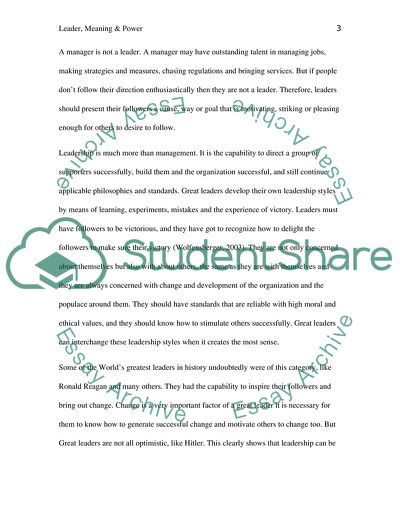Cite this document
(Leadership, meaning and Power Essay Example | Topics and Well Written Essays - 2250 words, n.d.)
Leadership, meaning and Power Essay Example | Topics and Well Written Essays - 2250 words. https://studentshare.org/social-science/1791805-leadership-meaning-and-power
Leadership, meaning and Power Essay Example | Topics and Well Written Essays - 2250 words. https://studentshare.org/social-science/1791805-leadership-meaning-and-power
(Leadership, Meaning and Power Essay Example | Topics and Well Written Essays - 2250 Words)
Leadership, Meaning and Power Essay Example | Topics and Well Written Essays - 2250 Words. https://studentshare.org/social-science/1791805-leadership-meaning-and-power.
Leadership, Meaning and Power Essay Example | Topics and Well Written Essays - 2250 Words. https://studentshare.org/social-science/1791805-leadership-meaning-and-power.
“Leadership, Meaning and Power Essay Example | Topics and Well Written Essays - 2250 Words”. https://studentshare.org/social-science/1791805-leadership-meaning-and-power.


